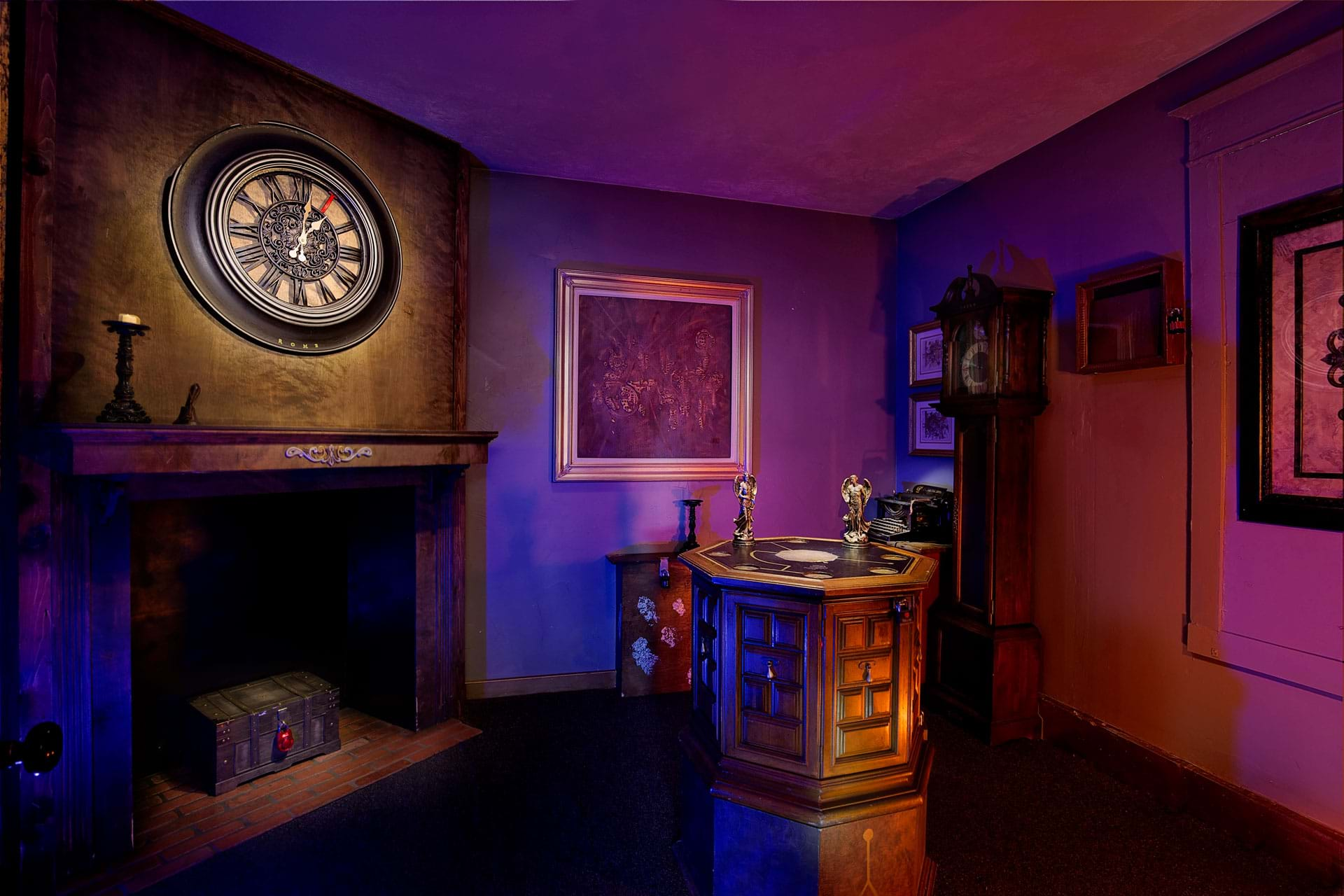Team Techniques: Exactly How to Collaborate Effectively in a Getaway Space
Navigating the complexities of an escape area demands even more than simple excitement; it calls for a well-coordinated strategy based in clear communication, tactical function assignments, and adept time monitoring. Groups should actively pay attention to every member's understandings, appoint functions that align with specific staminas, and preserve regular check-ins to make certain focus and prevent redundancy. By cultivating an environment that values communication and flexibility, teams can significantly enhance their effectiveness and success rates. The subtleties of these methods can transform the experience, yet exactly how specifically can they be carried out to make best use of the capacity for success?
Establish Clear Interaction

To promote clear communication, it is crucial to designate a main factor of call for info circulation. Short, focused updates from each team participant can keep the group educated without overwhelming them with info.

Designate Roles Purposefully
While clear communication establishes the foundation for reliable team effort, assigning functions strategically makes certain that each staff member's staminas are utilized successfully. In an escape area scenario, the time-sensitive and intricate nature of challenges demands a well-organized strategy to task delegation. By recognizing and leveraging individual expertises, teams can enhance their problem-solving capacities and enhance general efficiency.
Someone with a keen eye for detail might excel in discovering concealed items, while a rational thinker can be much better matched to addressing problems. This role frequently needs solid business and interpersonal abilities.
2nd, make certain that roles are versatile and versatile. As brand-new obstacles arise, the group needs to have the ability to pivot, reapportioning tasks as needed. This versatility helps maintain energy and stops bottlenecks that might occur due to inflexible duty jobs.
Eventually, a calculated approach to role task not just maximizes the staminas of each employee but also promotes a cohesive atmosphere, driving the team towards a successful escape.
Use Diverse Skills
Identifying and harnessing the diverse skills within your group can click here for more info dramatically raise your performance in a retreat space. Each staff member brings unique toughness to the table, and successfully leveraging these capabilities can accelerate problem-solving and improve overall effectiveness. A team participant with solid analytical skills could excel that site at understanding complex codes or patterns, while another with eager empirical abilities may rapidly detect hidden clues that others may forget.
Effective communication is vital to utilizing these diverse abilities. Urge staff member to articulate their understandings and ideas quickly, ensuring that all prospective options are taken into consideration. This comprehensive method cultivates a dynamic environment where creative thinking and crucial reasoning can thrive. Furthermore, appointing tasks that align with each member's staminas can protect against bottlenecks and ensure that development is continual.
Furthermore, diversity in skills usually converts to variety in thinking styles, which is invaluable in an escape area setup. While some obstacles may need logical thinking and precision, others could gain from creative and association of ideas. By recognizing and leveraging this variety, groups can resolve a more comprehensive series of difficulties much more efficiently, therefore boosting their possibilities of a successful retreat.
Manage Time Efficiently

Determine noticeable challenges and divide tasks click site based on group members' strengths, making certain that no one is idle. This practice can aid keep the group concentrated and avoid time from sliding away unnoticed.
Additionally, stay clear of one-track mind. If a problem is taking as well long, rotate employee or go on to one more challenge, returning later on with fresh perspectives. Interaction is critical-- maintain everyone upgraded on resolved problems and staying jobs to avoid repetitive efforts.
Last but not least, utilize any kind of hints or hints sparingly yet purposefully - best escape room. Knowing when to ask for aid can conserve beneficial time. By adhering to these time management concepts, teams can dramatically enhance their opportunities of a successful and delightful escape space experience
Debrief and Mirror
Reflection is a crucial element of group growth and enhancement in the context of getaway areas. Once the difficulty is finished, whether successfully or not, it is critical for the team to engage in an organized debriefing session. This procedure permits employee to examine their efficiency, identify strengths, and identify locations for renovation.
Begin the debrief by discussing what went well. Highlight certain circumstances of reliable interaction, problem-solving, and collaboration. Acknowledging these positive habits enhances them and urges their rep in future challenges.
Next, deal with the challenges came across. Go over minutes of complication, miscommunication, or inadequate approaches. Urge an open and positive discussion where staff member can share their viewpoints without anxiety of objection. This cultivates a society of constant enhancement and discovering.
Final Thought
Finally, successful collaboration in a retreat area is asserted upon clear communication, strategic role assignments, the reliable use of diverse skills, and competent time management. Normal check-ins and organized debriefings are vital for maintaining emphasis and promoting constant improvement. By developing a natural and adaptive group atmosphere, the possibility of efficiently addressing challenges and achieving the purpose of getting away the room is significantly boosted. This method not only makes certain success however also advertises collective development and discovering.